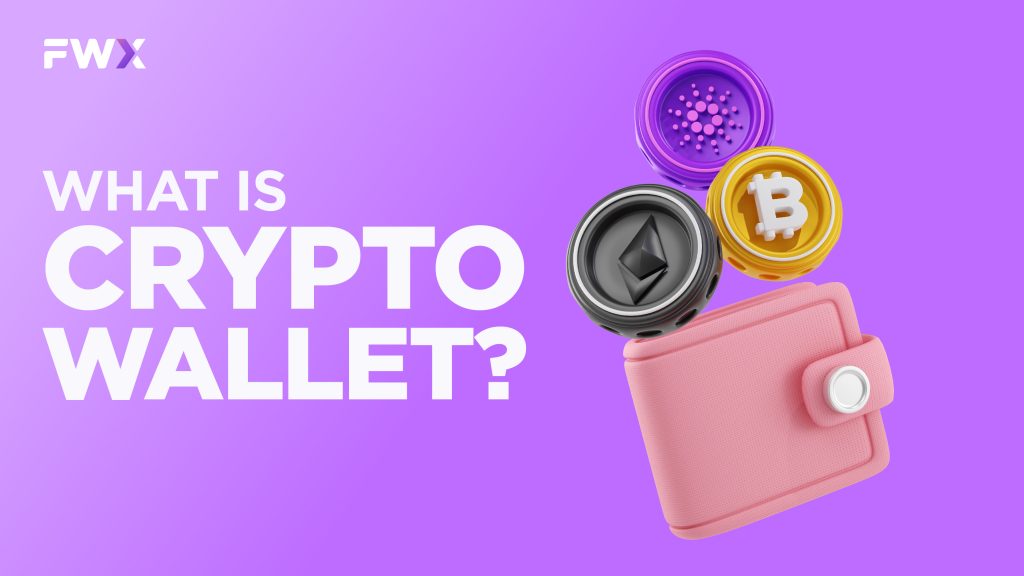In the rapidly evolving world of cryptocurrencies, the importance of secure and user-friendly crypto wallets cannot be overstated. These digital tools serve as the gatekeepers to your virtual riches, allowing you to store, send, and receive cryptocurrencies safely. In this comprehensive guide, we will dive deep into the world of crypto wallet, exploring their types, features, security considerations, and best practices.
What is crypto wallet?

A cryptocurrency wallet is a digital tool that allows users to securely store, manage, and interact with their cryptocurrencies. It serves as the equivalent of a physical wallet for digital assets, enabling users to send, receive, and monitor their cryptocurrency holdings. Crypto wallets are essential for anyone who owns cryptocurrencies because they provide a means of safeguarding private keys and managing assets on blockchain networks. Here are the key components and types of cryptocurrency wallets:
Key Components of a Cryptocurrency Wallet:
- Private Key: A private key is a long, randomly generated string of characters that serves as the cryptographic key for accessing and controlling cryptocurrency holdings. It is essential to keep the private key secret and secure, as anyone with access to it can control the associated assets.
- Public Key: A public key is derived from the private key and serves as the recipient address for cryptocurrency transactions. It is safe to share the public key with others, as it is used to receive funds.
- Wallet Address: A wallet address is a cryptographic representation of the public key. It is a string of alphanumeric characters that users share to receive cryptocurrency payments. Each cryptocurrency has its own unique address format.
- Wallet Software: Wallet software is the application or interface that users use to manage their cryptocurrencies. It provides functions for viewing balances, sending and receiving funds, and managing transactions.
The Role of Private and Public Keys
Private keys are secret codes that act as digital signatures, authorizing transactions and providing access to wallet balances. Public keys, derived from private keys, are used to generate wallet addresses where users can receive cryptocurrencies. Together, these keys form the foundation of crypto wallet security.
What are the types of crypto wallet?

It’s essential for cryptocurrency users to choose a wallet type that aligns with their security and convenience preferences. Many users opt for a combination of wallet types, using hardware wallets for long-term storage and software wallets for day-to-day transactions. Additionally, practicing good security hygiene, such as regularly backing up wallet information and keeping private keys secure, is crucial for protecting cryptocurrency assets.
Hardware wallets
Hardware wallets are physical devices designed solely for the purpose of securely storing cryptocurrency private keys. They are considered one of the most secure options because they are offline and less susceptible to hacking. Examples include Ledger Nano S, Ledger Nano X, and Trezor.
Software Wallets
- Desktop Wallets: These are wallet applications installed on a user’s computer. They provide control over private keys and offer a higher level of security compared to online wallets. Examples include Electrum (for Bitcoin) and Exodus.
- Mobile Wallets: Mobile wallet apps are designed for smartphones and provide convenience for managing cryptocurrencies on the go. They come in both custodial (where a third party manages keys) and non-custodial (where users control their keys) varieties. Examples include Trust Wallet, Coinbase Wallet, and BRD.
- Online/Web Wallets: Online wallets are accessible through web browsers and are usually provided by cryptocurrency exchanges. While convenient, they are considered less secure because the private keys are managed by a third party. Examples include Coinbase and Binance.
Paper Wallets
A paper wallet is a physical document or printout that contains a public key and private key in a QR code or text form. They are entirely offline, making them secure from online threats but vulnerable to physical damage or loss.
Brain Wallets
A brain wallet is a type of wallet where the private key is generated and stored in the user’s memory rather than in a physical or digital form. Users create the private key based on a passphrase or mnemonic phrase.
Multisignature Wallets: Multisignature wallets require multiple private keys to authorize transactions. They are often used for added security and can be configured to require signatures from different people or devices.
Paper-Based Wallets
Some wallets are designed for offline storage, where the private key is printed or written on paper. These are typically used for long-term storage (cold storage) and are kept in secure physical locations.
What is the safest crypto wallet for cryptocurrency?

Determining the “safest” cryptocurrency wallet depends on your specific needs, preferences, and how you plan to use your digital assets. There are various types of cryptocurrency wallets, each with its own set of security features. Here are some of the safest options based on different use cases:
- Hardware Wallets: Hardware wallets are often considered the safest option for long-term storage of significant cryptocurrency holdings. These devices store your private keys offline, making them highly resistant to online threats like hacking and malware. Popular hardware wallets include Ledger Nano S, Ledger Nano X, and Trezor.
- Paper Wallets: Paper wallets are another secure option for long-term storage. They involve printing your private keys and public addresses on a physical piece of paper and storing it in a secure location. Since they are offline, paper wallets are immune to online attacks. However, you must take care to protect the physical document from damage or loss.
- Multisignature Wallets: Multisignature wallets enhance security by requiring multiple private keys to authorize transactions. This means that multiple parties or devices must approve a transaction, reducing the risk of unauthorized access. Some software and hardware wallets offer multisignature features.
- Cold Storage: Any wallet that is kept offline and not connected to the internet is considered a form of cold storage and can be very secure. This includes hardware wallets, paper wallets, and even air-gapped computers used to generate and store private keys.
- Open-Source Wallets: Wallets with open-source code allow the cryptocurrency community to scrutinize the software for vulnerabilities and ensure transparency. Open-source wallets benefit from continuous peer review and improvements. Examples include Electrum and MyEtherWallet.
- Wallets with Strong Security Features: Look for wallets that offer advanced security features such as two-factor authentication (2FA), passphrase protection, and hierarchical deterministic (HD) wallets. These features add layers of security to your wallet.
- Well-Established Wallets: Wallets that have been around for a long time and have a proven track record of security and reliability are generally safer choices. Examples include Bitcoin Core for Bitcoin and official wallets provided by reputable projects.
- Mobile Wallets with Good Security Practices: Mobile wallets like Trust Wallet and Coinomi can be secure if used with caution. Make sure to enable device security features (e.g., PIN or biometrics), use strong, unique passwords, and regularly update your device’s operating system and apps.
- Using a Combination of Wallets: Many cryptocurrency users opt for a combination of wallet types. They may use a hardware wallet for long-term storage and a software wallet for daily transactions. Diversifying wallet usage can provide a balance between security and accessibility.
Remember that no wallet is entirely immune to risk, and your level of security depends on how well you follow best practices, protect your private keys, and keep your wallet software up to date. Additionally, it’s crucial to exercise caution and be aware of potential phishing attacks or scams when interacting with any cryptocurrency wallet or service. Ultimately, the safest wallet for cryptocurrency is one that aligns with your security needs and is used with diligence and care.
Conclusion
In a world where digital assets are gaining prominence, crypto wallets serve as the guardians of your financial future. By understanding their types, employing security measures, and adopting best practices, users can confidently navigate the crypto space while protecting their digital wealth from potential threats.


